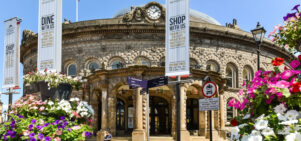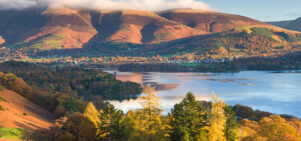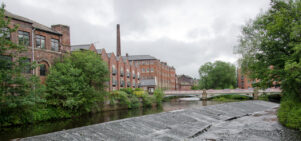Get out more: Why the National Trust isn’t what you think it is
Susie StubbsIt’s not just about cream teas and silver-haired volunteers, says the National Trust’s North West director.
If someone asked you what National Trust actually does, what would you say? John Darlington, the organisation’s North West director, is pretty clear. “People think the National Trust looks after beautiful mansions like Lyme Park and that the collections in them are looked after by silver-haired volunteers who will laser you if you get too close,” he says. “Or they think we are a place that serves nice scones, and that we’re an organisation that is interesting – but not yet. They’ll come back to us once they’ve retired.”
“We are all of those things – except for the silver-haired laser guardians – but we are not just about those things,” he continues. “We exist to look after special places, and those places are indoor and outdoor places.” He’s right: the National Trust is a major landowner (it owns around a quarter of the Lake District, for example) and has lately worked hard to change its image from one that smacked of fusty tweed to one that was more… well, relevant. It’s recent 50 Things campaign is a case in point. It’s basically a shopping list of things that kids should do before they hit eleven – den-making, playing pooh-sticks, climbing towering trees – all of which are ably facilitated by National Trust houses and gardens that don’t say “don’t touch” so much as “can we give you a hand with making that mud pie, miss?”
If you are disconnected from nature, you won’t care about it
The National Trust is also making inroads into city life. We reported its urban walks series in 2012, while a new “Gardener in Residence” scheme has just launched – the Trust hopes this will get 1,000 people in Manchester growing and gardening. It’s an interesting idea, one that builds on events such as Dig the City. But why, in a city not really known for its green spaces, does this kind of initiative matter? “A key issue is people’s disconnection with nature and the natural environment – the whole outdoor world,” says Darlington, who was speaking at CityCo’s debate on “greening” Manchester in December. “That disconnection has a significant negative impact on people’s health, wellbeing and happiness. Plus, if you are disconnected from nature, you won’t care about it.”
Anyone who has ever overdone city living is likely to agree: there’s only so long you can walk the mean streets before you start yearning for a stroll that doesn’t involve dodging buses and dubious piles of pavement detritus. So it’s good to see that the National Trust has got its eyes on the urban prize; if it reminds us, via a street planter here or a walk along a towpath there, that going green is a good thing, it’ll have done its job. “We’re interested in Manchester because it’s the first industrial city and we have a role to play in telling that story. And, also, we are for people from all walks of life,” says Darlington. So if you make one resolution for the upcoming New Year, make it this one: get out more.





















